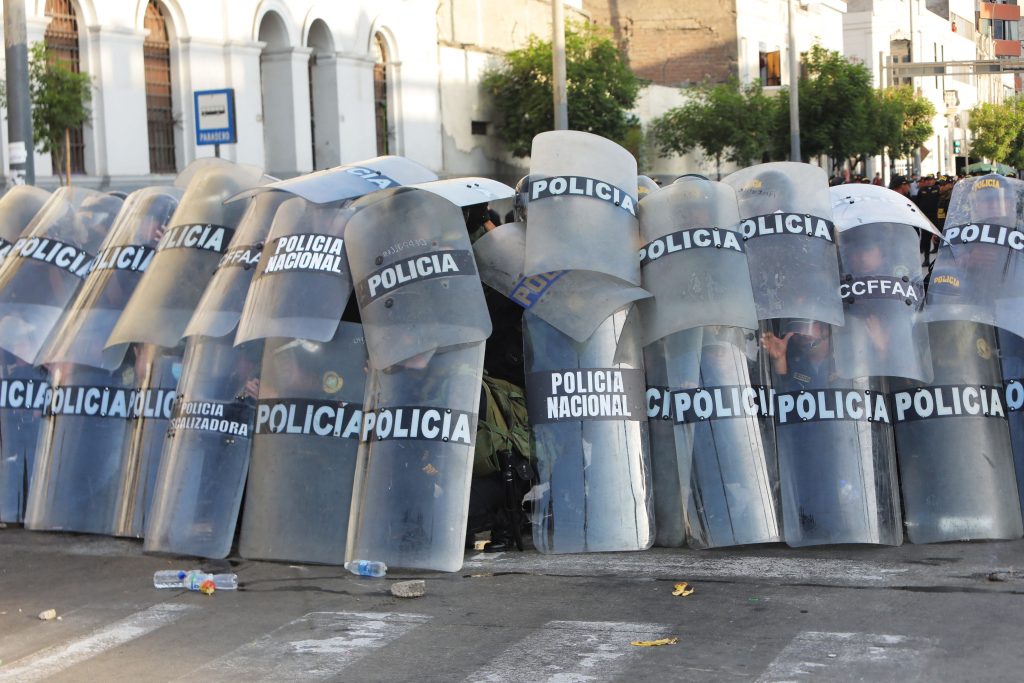The threat spectrum

Planet A
German Foreign Minister Annalena Baerbock has urged countries to set a global renewable energy target to substantially limit emissions and keep global warming to 1.5° Celsius, terming the climate crisis the ‘greatest security challenge of our century’. Speaking at the 14th Petersberg Climate Dialogue, Baerbock referred to the International Energy Agency’s estimates that global renewable energy capacity needs to triple to successfully limit warming. The conference lays the groundwork for the UN Climate Change Conference, COP-28, in Dubai at the end of this year.
Baerbock underlined that while G7 countries have already pledged to accelerate their clean energy transitions and renewable energy capacities, the situation demands a global treaty. Codifying existing commitments in a treaty that binds states to their words is critical given that the G7’s commitment from April doesn’t set any new deadlines on phasing out coal power. Importantly, Germany’s ambitious but necessary call for action comes in the context of an altered regional energy landscape following Russia’s invasion of Ukraine.
Democracy watch
Human Rights Watch released a 107-page report last week condemning the Peruvian government’s reaction to protests that erupted last December after the impeachment and arrest of then-president Pedro Castillo. The report stated that Peruvian security forces used ‘brutal, indiscriminate and disproportionate’ force to quash the protests by thousands of people and left nearly 70 dead between December 2022 and February 2023.
Mostly rural workers and Indigenous people in the south of Peru took to the streets in the largest protests in over a generation. The protestors’ demands included calls for a new election, the dissolution of Congress, and the resignation of current president Dina Boluarte, who was previously vice president. The protests come amid ongoing political turmoil and deepened concerns over the erosion of the rule of law and democratic institutions.
Information operations
Pervasive cyber threats from China are unlikely to subside according to FBI Director Christopher Wray, who told a Congressional committee Chinese hackers outnumber bureau agents by ‘at least 50 to one’. The claim highlights the scale of the challenge in cyberspace, particularly from China, and informs the agency’s request for nearly US$63 million to fund 192 new cyber specialist positions. Concerns about state-sponsored espionage pervade the US-Australia alliance, with a ‘significant increase’ recorded in Chinese cyberattacks against both countries after details emerged of the AUKUS nuclear submarine pact.
Australia’s Defence Strategic Review identified staff shortages in a similar context. The DSR found that the Chief Information Officer Group, one of the most complex ICT networks in Australia, is ‘too reliant on individual contractors’. This is a major limitation for cybersecurity. The review called for closer collaboration between the ADF and the Australian Signals Directorate and a rebalanced 60:40 staff-to-contractors ratio for both the ADF and the public service. This would support efforts to make Australia the ‘most cybersecure country’ in the world by 2030.
Follow the money
The European Commission has reached an in-principle agreement to allow the transit of Ukrainian grain to resume through Poland, Romania, Hungary, Slovakia and Bulgaria. The five eastern European neighbours unilaterally halted agrifood imports in April amid an oversupply of cheap Ukrainian grain they say puts local producers at a disadvantage. Fearing devastating financial and job losses, farmers took to the streets to demand assistance and the re-introduction of tariffs and other trade duties on Ukrainian cereals.
The bans forced the commission to intervene, promising ‘preventive measures’ to address the situation and a US$165 million package to compensate farmers. The temporary resolution comes as Russia threatens to withdraw from the Black Sea deal, which enables the export of grain from Ukrainian ports onto the world market, and members of the G7 pledge to intensify sanctions on Moscow. This dynamic raises questions over how long the commission can maintain solidarity with war-torn Ukraine while balancing the competing needs of its member states.
Terror byte
Iranian judges have retaliated against US courts’ findings that blame Iran for promoting terrorism by accusing US entities and officials, and former presidents Barack Obama and George W Bush, of ‘creating’ the Islamic State terror group.
The Iranian judgement calls on the US government to pay US$313 million as compensation for the 2017 attacks in Tehran by Islamic State of Iraq and the Levant. This amount includes compensation for financial, ‘moral’, and ‘punitive’ damages. Other parties include US Central Command, the Central Intelligence Agency, and weapons manufacturer Lockheed Martin.
The judges said the ruling was a response to US findings on Iran’s role in terrorist attacks which include calls for Iran to pay billions of dollars in compensation. The judgement follows an International Court of Justice ruling on a 2016 attempt by Tehran to unfreeze Iranian assets held by US courts to pay compensation to victims of terrorist attacks. The ICJ found that some of these freezes were illegal and ordered the US to pay compensation. However, the Court stated it did not have jurisdiction to rule over the freezing of US$1.57 billion in assets owned by Iran’s central bank.
